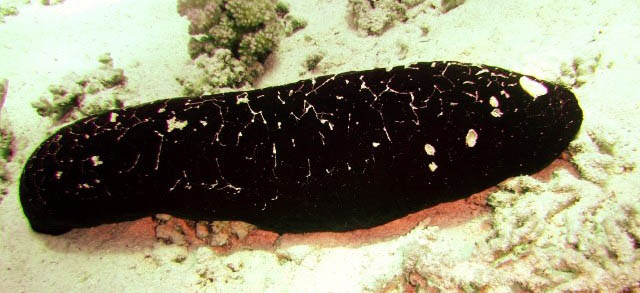
For Immediate Release, May 14, 2020
Contact:
|
Kristin Carden, (510) 844-7100 x 327, kcarden@biologicaldiversity.org
|
Petition Seeks Federal Protections for Black Teatfish Sea Cucumbers
Shallow-water Species Faces Extinction From Overfishing, Wildlife Trade
WASHINGTON— The Center for Biological Diversity petitioned the federal government today to protect black teatfish under the Endangered Species Act. Overfishing and wildlife trade have caused rapid population declines for this spotted, plump sea cucumber, found in shallow waters outside the United States.
Today’s petition to the National Marine Fisheries Service cites expert reports suggesting that black teatfish populations have declined by 60-70% across 80% of their range.
“These incredible ecosystem engineers recycle nutrients and improve water quality, but they’re headed for extinction if we don’t protect them,” said Kristin Carden, an ocean scientist at the Center. “Overfishing and the international wildlife trade have devastated the black teatfish population. The international community has stepped up to protect them, and now the U.S. needs to help that effort.”
Black teatfish live among tropical reefs and seagrass in the Indian Ocean along the east coast of Africa, the west coast of India, and the islands in between. They are in high demand in Asia, sold as the dried and then-reconstituted delicacy bêche-de-mer or trepang.
The United States also imports thousands of sea cucumbers a year, with volume of sea cucumbers imports by weight increasing by 36 times over a decade.
International trade is the biggest threat to the animals, and a soaring demand has caused populations and fisheries to crash in recent years.
Nations around the world last year approved global trade restrictions for black teatfish and two other sea cucumbers under the Convention of International Trade of Endangered Species (CITES). While important, those protections allow for continued harvest and trade of teatfish, subject to permitting and monitoring requirements.
Listing the black teatfish as endangered under U.S. law would strengthen those protections by strictly banning all imports and sale within the United States, necessary to ensure the U.S. doesn’t contribute to the sea cucumbers’ further decline.
Teatfish are particularly vulnerable to overfishing because they are large, sedentary and occur in shallow waters, making them easy to capture. Teatfish also mature late and require high densities to reproduce, which adds to their susceptibility to population declines.
Climate change and pollution further threaten the black teatfish by degrading the coral reef and seagrass habitats where the species lives.













Đăng nhận xét